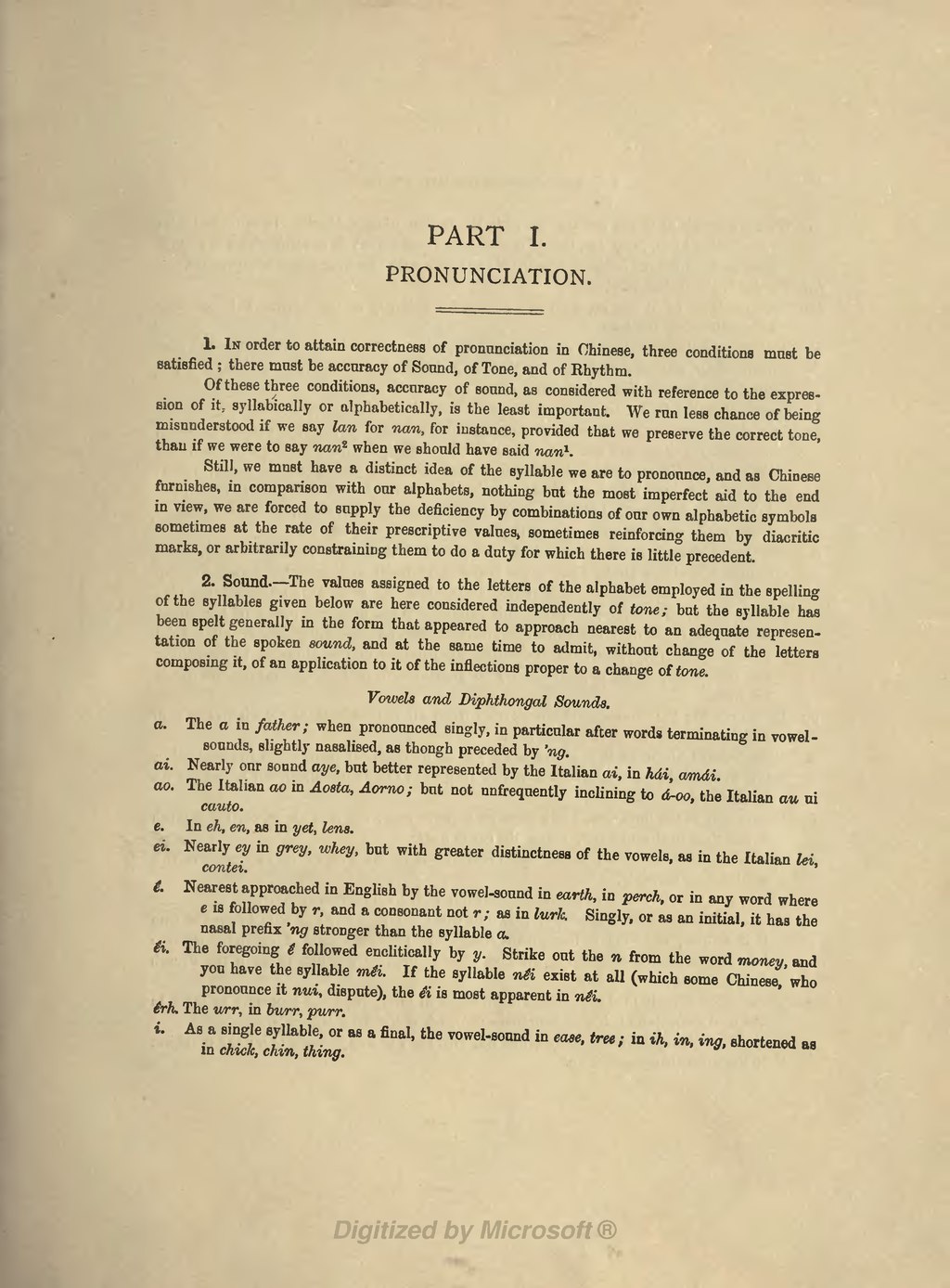PART I.
PRONUNCIATION.
1. In order to attain correctness of pronunciation in Chinese, three conditions must be satisfied; there must be accuracy of Sound, of Tone, and of Rhythm.
Of these three conditions, accuracy of sound, as considered with reference to the expression of it; syllabically or alphabetically, is the least important. We run less chance of being misunderstood if we say lan for nan, for instance, provided that we preserve the correct tone, than if we were to say nan2 when we should have said nan1.
Still, we must have a distinct idea of the syllable we are to pronounce, and as Chinese furnishes, in comparison with our alphabets, nothing but the most imperfect aid to the end in view, we are forced to supply the deficiency by combinations of our own alphabetic symbols sometimes at the rate of their prescriptive values, sometimes reinforcing them by diacritic marks, or arbitrarily constraining them to do a duty for which there is little precedent.
2. Sound.—The values assigned to the letters of the alphabet employed in the spelling of the syllables given below are here considered independently of tone; but the syllable has been spelt generally in the form that appeared to approach nearest to an adequate representation of the spoken sound, and at the same time to admit, without change of the letters composing it, of an application to it of the inflections proper to a change of tone.
Vowels and Diphthongal Sounds.
- a.
- The a in father; when pronounced singly, in particular after words terminating in vowel-sounds, slightly nasalised, as though preceded by 'ng.
- ai.
- Nearly our sound aye, but better represented by the Italian ai, in hái, amái.
- ao.
- The Italian ao in Aosta, Aorno; but not unfrequently inclining to á-oo, the Italian au ui cauto.
- e.
- In eh, en, as in yet, lens.
- ei.
- Nearly ey in grey, whey, but with greater distinctness of the vowels, as in the Italian lei, contei.
- ê.
- Nearest approached in English by the vowel-sound in earth, in perch, or in any word where e is followed by r, and a consonant not r; as in lurk. Singly, or as an initial, it has the nasal prefix 'ng stronger than the syllable a.
- êi.
- The foregoing ê followed enclitically by y. Strike out the n from the word money, and you have the syllable mêi. If the syllable nêi exist at all (which some Chinese, who pronounce it nui, dispute), the êi is most apparent in nêi.
- êrh.
- The urr, in burr, purr.
- i.
- As a single syllable, or as a final, the vowel-sound in ease, tree; in ih, in, ing, shortened as in chick, chin, thing.
